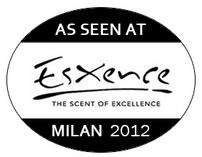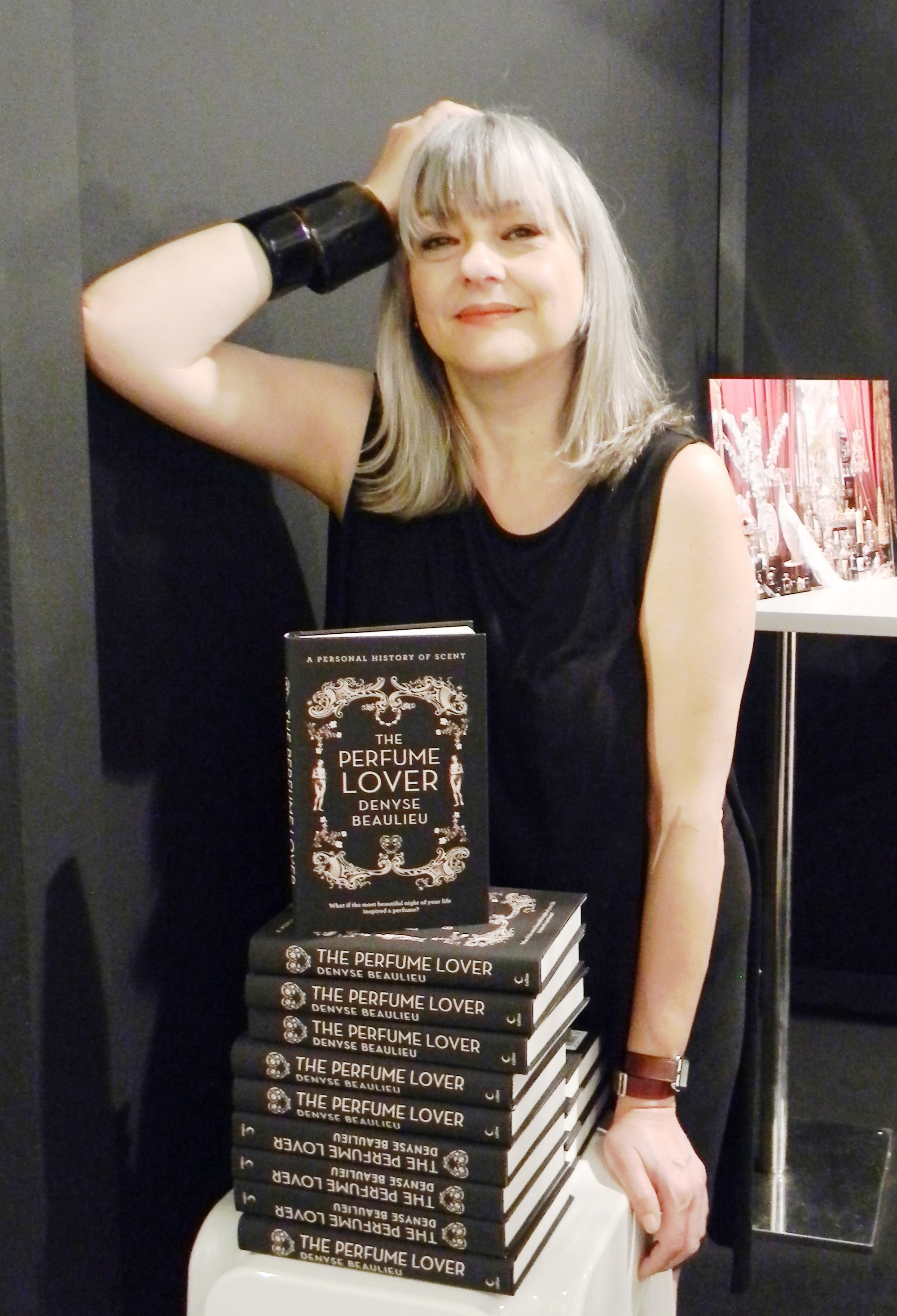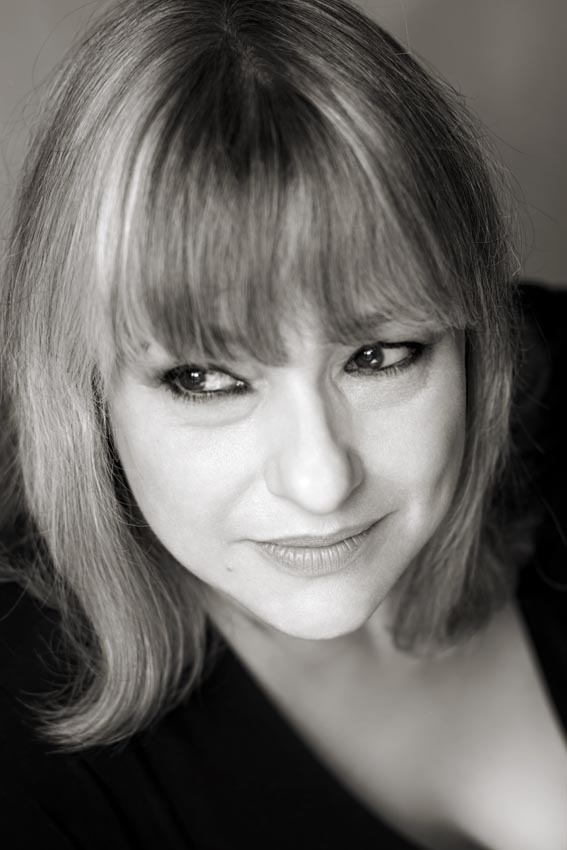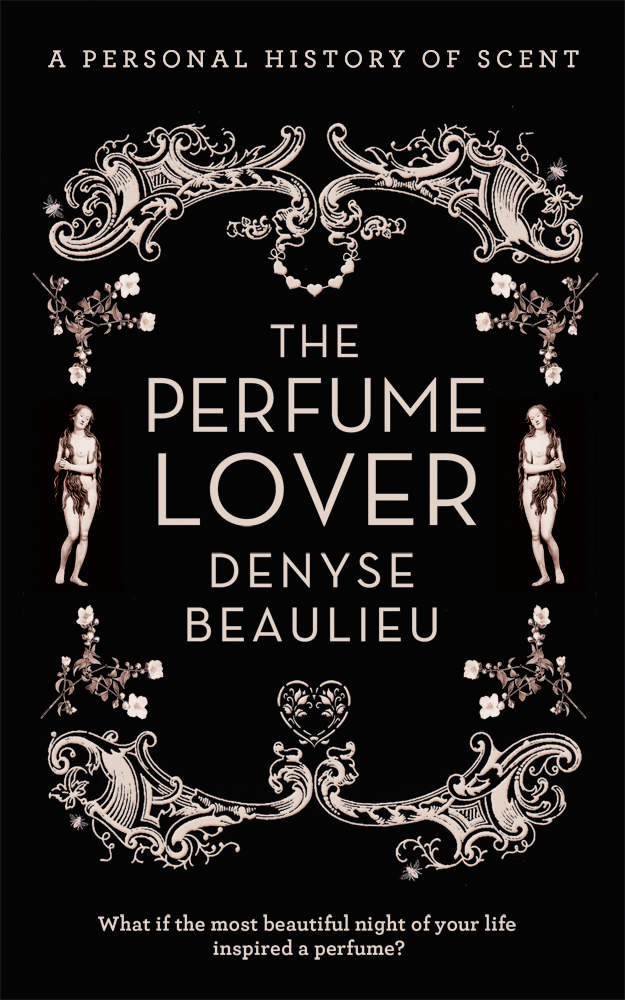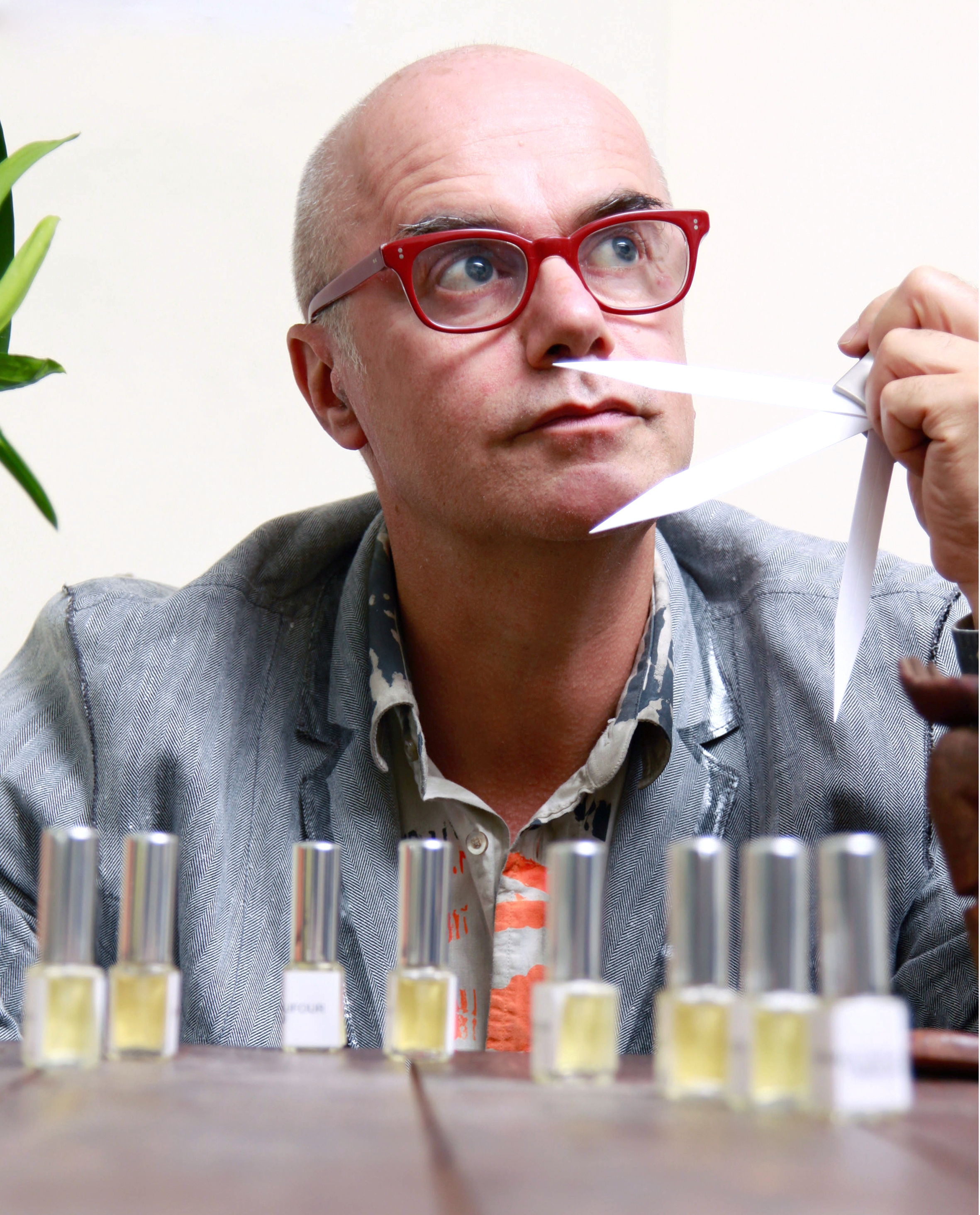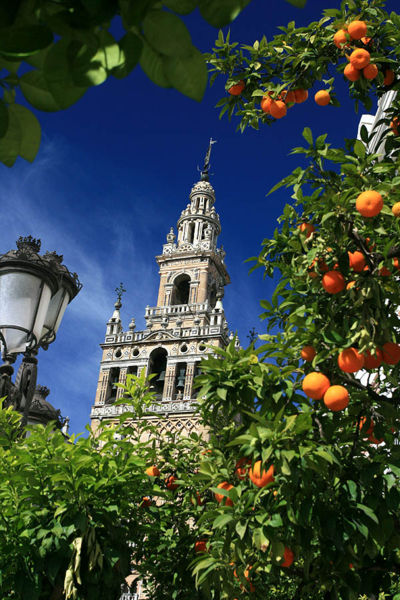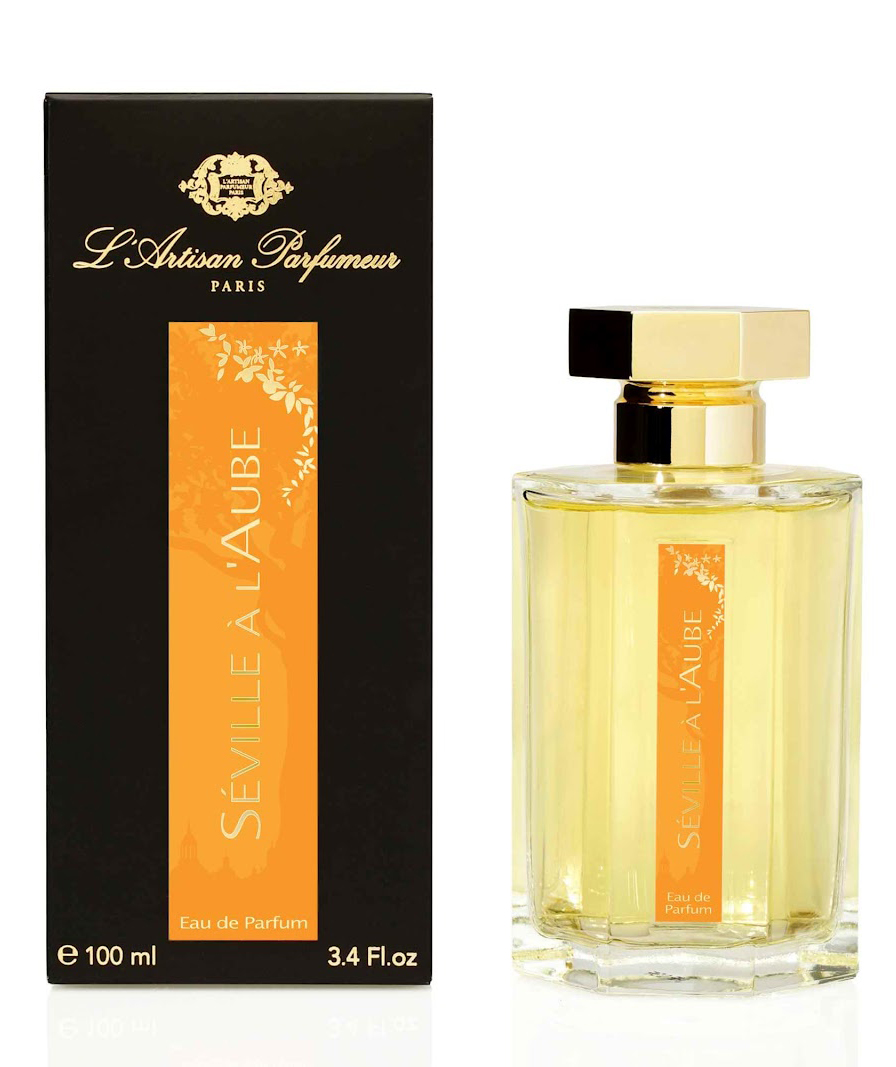April 23, 2012
Co-Founder, creator and artist of A Dozen Roses, Sandy Cataldo, signing bottles
The Perfume Magazine meets The Perfume Lover
An Interview with Author Denyse Beaulieu
by Mark David Boberick
Managing Editor
Disclaimer: The views and opinions expressed herein are solely those of the author and/or guest contributors and do not necessarily state or reflect those of
The Perfume Magazine LLC, Raphaella Brescia Barkley or Mark David Boberick.
All content included on this site, such as text, graphics, logos, icons, videos and images is the property of The Perfume Magazine, LLC. or its content suppliers and protected by United States and international copyright laws. The compilation of all content on this site is the exclusive property of The Perfume Magazine, LLC. and protected by U.S. and international copyright laws.
The Perfume Magazine Banner was designed exclusively by GIRVIN and is the property of The Perfume Magazine, LLC. and are protected by U.S.and international copyright laws. Additional Banner information can be found on our ABOUT page.
All images appearing in the banner are registered trademarks of their respected company and are used with permission.
© Copyright. 2012. All Rights Reserved. The Perfume Magazine LLC
Milan. March 31, 2012.
Mark David: Denyse, when did you start writing The Perfume Lover?
Denyse Beaulieu: I started in early 2010. I had a project going through the rounds at British publishers. I fell in love with an editor and she loved my writing, but she didn’t want a guide, which the project was originally. It wasn’t like Luca Turin’s guide, but it was more of a classic thing and she thought that would appeal to just, you know - the ‘geeks.’
MD: So she wanted more of a journey?
DB: She wanted a narrative, and so we started talking and I mentioned that a famous perfumer was interested in a story I told him to make a perfume with. She said, “Well there’s your story.” So I went back to Bertrand Duchaufour and told him, “We could do this many ways. Would you like to appear in the book? Or we could use a pseudonym, we could fictionalize it, etc.” He thought about it and he said “Well, no, let’s do it with my own name - warts and all and we’ll show the development as it really happened.”
MD: So Bertrand was totally up for it?
DB: Yes.
MD: No hesitation?
DB: Well, he pondered the matter for five minutes. I mean – five real minutes. He did think about it, but he’s a brave man, he’s quite fearless.
MD: And as an independent perfumer, he has more liberty to do something with this.
DB: Yes, obviously. Very obviously because at that point the product was just completely his idea based on my story
MD: He has the freedom, I suppose, at L’Artisan Parfumeur to create as he sees fit, and as the mood strikes him?
DB: Well, no, they do ask him for specific types of products. I would say that they give him artistic freedom and he used that freedom to invite me into the process. But at the very beginning, it was really because he wanted to do that fragrance, with no particular client in mind.
MD: Now the book covers a period of what time?
DB: A year and a half, pretty much.
MD: And through this year and a half, what was your correspondence with Bertrand? Was it weekly?
DB: Sometimes we’d see each other three times a month and sometimes we wouldn’t see each other for a couple of months, at which point I got really pissed off. [laughs.] Because he was traveling and doing other things, juggling many projects. But when he took the time, he really took the time and we’d be working for a couple of hours or more. Bertrand really took the time to discuss the process with me - he's an excellent pedagogue and a fantastic listener. And it was good, actually that there were pauses because then we could reflect on it. The only time that the pause was very long and I stayed with one of the mods for over a month, it was very difficult for me, even though it had flaws, to move forward from it. The book was pretty much written in real time at that stage which means when he wasn’t there, I would write about other stuff that the perfume conjured for me at that point in its development. For example, if I felt that it was a little bit too masculine, I would remember the time that I wore my first masculine and from there on I would talk about that period of my life. And then I would move forward to explain why some notes are masculine or feminine in Western cultures.
MD: Were you ever worried when you were giving feedback that you might be giving such feedback that would really tilt the cart and disrupt the development?
DB: Oh, I was terrified. You’ll see in one of the chapters, I do bring in, at one point, something that A) goes back to a much earlier mod, and B) brings in an element that, in a way, he hadn’t been listening to, or perhaps I hadn’t been forceful enough in mentioning. But yes, I was really, really scared because there were moments where he wasn’t obtaining what he wanted within his style, within his register. Something that wasn’t what he would stand behind. So yes, it’s scary as hell when you’re talking to a top perfumer and you say this, that, and the other and they freak out because they don’t know how to handle it. But I trusted him absolutely. Even the fact that he freaked out showed how much he cared about the project and how much he trusted me by admitting to me that he was having great doubts about this stage of the development. So, I thought, well, he trusts me so therefore I trust him.
MD: You started your blog, Grain de Musc in 2008. Prior to that, had you any experience writing or blogging about perfume?
DB: I guest posted here and there, but I thought the only way of doing this in any sort of organized way was to have my own blog.
MD: And when you started Grain de Musc, did you ever think that just 4 years later you would be doing the publicity circuit on your own perfume book?
DB: The book was always in the back of my mind because whatever I am, I am a writer – that’s the one thing that I am. I do a lot of other things to survive, but writing is the one thing. So there was always an idea that a book would come out of it. I was a little surprised that it came out of the Anglo-Saxon sphere. I was expecting the French to reach out to me first. But yes, I knew I’d be writing a book. That a perfumer would make a perfume based on an idea of mine and that I would end up giving a lot of input and being part of the process? That I didn’t know. It’s not like I waltzed into Bertrand’s lab one day and said, “I would love to do a perfume with you and talk about it in a book.” It happened the other way around. Such serendipity – it’s amazing, it’s not something you plan for. It’s just two paths intersecting. I’d say I have a conversation with perfumes through my writing and sometimes the conversation prolongs itself with perfumers in real life.
MD: What is the name of the fragrance?
DB: It is called Séville a l’Aube. But for most of the book, it had a working title, Duende.
MD: Can I tell you one of my favorite moments in the book?
DB: Tell me.
MD: You write, “Orientals are not my favorite genre… I would never have requested the notes found in Duende, but if Duende is an oriental, it is because Seville dictated it.”
DB: Yes!
MD: For me, it’s interesting because one of the long-standing conversations in the online perfume community is, “Oh, if it’s an oriental, I won’t even go near it.” Or, “Oh, Chypres just don’t work for me – I’ll stay away from them.” And I love that this is a discovery of yours, you know? And you’re no stranger to perfume, Denyse – but you have this discovery of your own.
DB: Well, one thing that I have learned throughout the testing is: “Never say never.” And this is actually the problem with classifications and giving out notes - people will hear patchouli and say “Oh no, no.” It’s all about expanding your receptivity even though after that, you might not want to actually wear the thing. But my point of view is more about contemplating the juices in an aesthetic way.
MD: Early on in trying perfumes, did you ever think, “Well, I don’t need to seek that fragrance out just yet because it’s a fougere,” or “When I get to it, I’ll get to it because it’s a chypre,” – were you always receptive to different genres?
DB: I’ll tell you what. When I started covering fashion shows, it was with a very seasoned fashion editor, and she taught me not to consider things from the point of view of ‘would I wear them or not’ but from the point of view of a critic. And the point of view of a critic is looking at a piece of work not inasmuch as it extends your persona or you identify with it, but judging it by its own criteria. After that, of course, you choose what you want to live in for the day, or for the week, or for the month. That said, when I’m considering a perfume, obviously emotion is the first thing. I call it the “pleasurable byproduct of Wow,” after an expression used by the music critic Greil Marcus in an interview. Of course I prefer to write about things that grab me at a gut level first… Every perfume doesn’t necessarily talk a language that is familiar to you, part of the learning curve is learning about that language.
Denyse Beaulieu photographed by Raphaella Barkley
at Esxence 2012, Milan.
MD: Would you say that the fact that Séville à l’aube would be classified by Michael Edwards as a floriental has opened your eyes to other florientals that you may not have paid attention to in the past?
DB: No, I don’t think so because they’ve always been in my repertoire. It’s just that if I had ordered a bespoke perfume, that’s not necessarily the one, the One with a capital ‘O’ that I would have asked for.
MD: It’s not the box that you would have checked.
DB: Not necessarily, no. But at the same time, I think that’s why, in a way, I’ve never really fantasized about having a bespoke perfume because I prefer, like in any work of art, something that takes me where I didn’t know I’d be going.
MD: One of my fears about having a bespoke perfume created is that I love so many different things that I know I wouldn’t be able to stop at just one, but I don’t know which one I would start with.
DB: Exactly – there’s no “the One” with us scent sluts, so I think the wonder of this was letting the perfume become what it wanted to become.
MD: But the project was never intended for mass production, it was just initially a conversation. But in the book, when L’Artisan first came on board, you were ecstatic at first, but then it seemed like you didn’t stay ecstatic for very long. Did fear set in? Were you afraid they were going to alter it? You must have been very territorial of this creation.
DB: Yes! I was amazingly territorial. I think I was the first one who was surprised at how very territorial I was. L’Artisan didn’t get directly involved in the sessions that I had with Bertrand, though they were following the development, obviously. And I shouldn’t have really been afraid because I love what they’ve put out with him. They were pretty much always on the same page, though I'm not sure if they were really aware of the level of input Bertrand was asking me to give until they read the galleys of the book. But sometimes Bertrand wasn’t very precise about what they’d been saying to him when they had evaluation meetings. Because he was so busy, he would just send a quick text message or email saying “oh, they’ve picked a mod” without saying which mod they picked and I would go into an utter panic for a few minutes until he replied with more details.
MD: As Séville à l’aube developed, you were very insistent that it stay true to the story. But what of your actual olfactory memory of that night? When you smell it now, does it take you there? Or is it merely because you stayed so true to the story that you are taken there?
DB: Well, I would say that, and this is something that’s typical of any type of memory at all – when you retell them from your perspective, in a way it’s as if you crushed the earlier memory by your rewriting of it. One thing that I say in the book is that it didn’t matter to me that this would take me back to Seville. Those smells are gone. If somebody went to Seville during the Holy Week and did a headspace capture and put me in a room full of it, I might have a very vivid flashback. But the perfume just took us where it needed to be. It no longer mattered that it was true to the actual memory, what mattered was that it was true to the story, which was already a rewrite of that memory of mine. If I ran into the boy from the story tomorrow, he might say, “Honey, you got it completely wrong.” So for all I know, I’ve altered the story entirely.
MD: Would you say it’s an abstraction of the story?
DB: No, I wouldn’t say it’s an abstraction, I would say it’s a narrative. It’s fiction. In the book, I say that Séville à l’aube is my future memory of what I was living while we were creating the perfume, rather than the actual memory of that night in Seville.
MD: My hope for you is that one day, you do get that jarring olfactory flashback of that night and I would love to know how close you came.
DB: At one point, we did consider going to Seville for the Holy Week, because there was a vague project for a documentary. The idea was to film Bertrand’s and my reactions to it. I remember the first thing Bertrand said when that project came up was “Well, what if it’s completely different from your memory and I have to rewrite the whole thing?” But that didn’t come through; it’s probably just as well. I ended up not mentioning it in the book, because it tanked pretty quickly.
MD: Well the perfume is truly stunning.
DB: Thank you. It’s powerful, too, isn’t it?
MD: Yes, it is powerful but not overpowering.
DB: What’s interesting, and this isn’t in the book because it happened after I had submitted the manuscript, is that I was wearing the formula that had been approved by L’Artisan and I wasn’t getting any compliments, which meant that it wasn’t diffusive enough. Even my hairdresser couldn’t detect it even though she was playing around in my hair – she should have been able to smell me. I was really concerned, so I wrote to Bertrand asking him whether it needed to be more concentrated – I’d been testing a 10% solution. He answered: “No, I think I’m going to have to tweak it again,” and he did. I remember this vividly: we were in a café sitting on a terrace. He made me smell the revised mod and all of a sudden it was just this olfactory bomb. He had played with it, tweaked the proportions a little bit and it became huge. Diffusiveness was very important to me, and also to him because he kept repeating to me that the 3 criteria for the success of a perfume were that it needed to be original, diffusive, and long-lasting. We knew this perfume would be more intensely scrutinized than others because of the book, so it was very important for everybody involved that the perfume would be the best that it could be within its criteria.
MD: L’Artisan Parfumeur will launch Séville à l’aube in July, but The Perfume Lover officially launched in the United Kingdom in mid-March. Will there be a French version?
DB: There will be a French version in early 2013, around the same time as the American and Canadian editions.
MD: Did you write and translate both the English and the French editions?
DB: Yes, I did actually and that was my condition for signing with a publisher in France - that I translate the book. After all, I’m a translator by trade. And I have seen, how should I say…a very high profile perfume book translated into French that was such a mess because of the translator's incompetence that the book never came out. The author vetoed it.
MD: In the panel discussion at Esxence , you and I, and several others were talking about how we write about perfume; this invisible art form. Do you still find that the language is in development, how we perceive fragrances and translate them onto the page?
DB: I think language will always be personal, vague, not agreed on because it’s just the way our brains are wired. I talked about this with a prominent neurobiologist who specializes in olfaction, who said that the olfactory bulb was actually the first part of the brain to develop in evolution. The bits that identify smells are not well-connected to the “word” part of the brain, which developed much later. So in fact, I don’t think that we will ever get an extremely accurate vocabulary. But fragrance is a writing generator: every genre and every literary strategy is licit in talking about perfume. After that, people can say stupid things, people can say misguided things – but even when they say misguided things they can make you think, “Oh…why does she say that?” And then you think, “Oh yes, because this facet actually conjures that other facet which is contiguous to it on the olfactory map.” But to me, scent is above all a writing generator, an object that I respond to with another written object which is an accompaniment, a translation, an echo, an answer, a correspondence – it’s whatever you want it to be.
I don’t know what fragrance writing will become – if there’s more transparency from the industry it might become more accurate, by dint of having the information and talking directly to the people who know what’s happening. That would be helpful because playing “Guess the Note” is really just the beginning of the thing. You know, it can turn into a parlor trick – “Oh, I smell dihydromyrcenol!!” Yeah sure, but then what? What does it say? How does it talk to the other notes? What’s interesting is the effect – and the stories you can tell from there. Playing at “Guess the Note” or “Guess the Molecule” –can only take you so far. It doesn’t tell you why the perfume is beautiful.
MD: Congratulations once again on both the book and the fragrance, they are really extraordinary.
DB: Thank you, I hope they are both a success. In a way, the fragrance is much closer to my heart because it’s more mysterious to me, and it’s much more of a miracle that it would happen.
MD: Yes, which is very interesting because for a writer, the book is the ultimate goal. You got two ultimate goals!
DB: Yes, well, I am a writer and I have published books, so that wasn’t entirely new to me, whereas the perfume is such a serendipitous event in my life. You go from being an amateur to being an “emittor”. You cross the threshold. Alice in Wonderland provides a lot of metaphors for our world, you know. We say “Falling down the rabbit hole,” but in this case I’ve been “through the looking glass,” or, rather, the smelling glass, and that was one of the highlights of my life as a Perfume Lover.
Our thanks to Denyse Beaulieu for taking the time to speak with The Perfume Magazine.
The Perfume Lover, A Personal History of Scent is now available for purchase in the United Kingdom. It will be released in France, Canada, and the US in early 2013. If you are not a resident of the UK, it is still possible to order the book through Amazon.com
Séville à l’aube by L'Artisan Parfumeur will launch in July 2012.
Be sure to visit Denyse Beaulieu's blog, Grain de Musc, for more of the author's musings on the scented world, written in English and in French.
FIND OUT HOW YOU CAN WIN YOUR VERY OWN COPY OF THE PERFUME LOVER ON OUR FRONT PAGE!
MARK DAVID BOBERICK | Managing Editor
Denyse Beaulieu photographed by Vincent Thibert
"I have a conversation with perfumes through my writing."
- Denyse Beaulieu
The Perfume Lover by Denyse Beaulieu
Collins 2012
An imprint of Harper Collins Publishers
London
MD: OK, so you’re very territorial, it’s your baby. But it’s created among 2012 standards – it’s IFRA compliant. But, what if, Denyse, what if next year the IFRA puts out another list of standards and it drastically changes Seville a l’Aube?
DB: Well, actually, the noises that I’m getting from IFRA is that they are slowing down on the standards, they’ve pretty much cleaned up everything they wanted to clean up, so it’s not going to be as drastic as it was around 2005 with oakmoss, for instance. But if they asked for a drastic change because of regulations, then I guess I would get a huge, gigantic batch of it done for me.
MD: When you were passing around the mods amongst friends and your students in London, did you ever have second thoughts about doing that? What would you have done if the majority of them were not drawn to it?
DB: Oh I didn’t even doubt for a second that they would be, I must say. Of course with my friends, it was hard for them to say that they didn’t like it. Still, there is something that comes on the face of people when they have that first sniff that cannot be faked, you know? With the students, I wasn’t sure, even though we’d just had an intensive 10-hour fragrance appreciation course, so that their nose was a little more cultivated than initially. What worried me was that they really liked its sweetness. It is a sweet perfume but it was much sweeter in that earlier version. And that alarmed me a bit because I thought, Hmm, if they like it so much, maybe it’s a bit too commercial?
MD: It is rather sweet, initially.
DB: Yes, but I call it nectary. It’s more like flower nectar, to me. When you apply different words, as you know very well, it changes the value. If you say sweet, it can mean cloying, disgusting, confectionery. But nectar – all of a sudden you’re in a flower, like when you’re little and you suck all the nectar out by the bottom of the flower.
MD: Absolutely. And it’s not candy-sweet, it really is rather like nectar.
DB: And it doesn’t have those sweet materials like ethyl maltol, I’ve seen the formula. It does have ethyl vanillin, which is very powerful, but no ethyl maltol.
Bertrand Duchaufour, Perfumer
"For Denyse Beaulieu, a respected fragrance writer and blogger living in Paris, perfume is her world, her love, her life. At a chance meeting with an esteemed perfumer, Bertrand Duchaufour, she shares her story of a sensual night spent in Seville under a blossoming orange tree in the arms of a beautiful man. The tale stirs the perfumer's imagination and together, they create the incredible - a scent that captures the essence of that night." - Description from The Perfume Lover
The world of fragrance, while seemingly vast, is in fact - not very large at all. And while there may be over 1200 new fragrances released in a calendar year, very few literary tomes dealing with the subject are published. So when a new volume on perfume launches, every fragrance fan around the globe pays attention. For the first time, In her new book, The Perfume Lover, A Personal History of Scent, a writer becomes the perfumer's muse. Never before has the development of a scent been so disclosed and uncensored. Beaulieu takes us on a journey behind-the-scenes into the perfumer's lab, tracking the history of scent along the way. I recently sat down with the author at the Palazzo la Permanente in Milan, Italy, where Esxence was in full-swing, to discuss this spring's must-read perfume book.
